Lagarde calls for forceful reform
Updated: 2016-09-02 12:13
By Chen Weihua in Washington(China Daily USA)
|
||||||||
International Monetary Fund chief Christine Lagarde called on Thursday for stronger policies to avoid the low-growth trap, before embarking on her trip to China for the G20 Leaders Summit.
The G20 Summit, to be held in eastern China's city of Hangzhou on Sept 4-5, is aimed at finding ways to boost global economic growth.
Lagarde said low growth, high inequality and slow progress on structural reforms are among the key issues that G20 leaders will discuss at the gathering.
"This meeting comes at an important moment for the global economy. The political pendulum threatens to swing against economic openness, and without forceful policy actions, the world could suffer from disappointing growth for a long time," she said in an article dated Sept 1 but released to the press on Wednesday under embargo.
The year 2016 will be the fifth consecutive year that global GDP growth has fallen below its long-term average of 3.7 percent (1990-2007), and 2017 may well be the sixth, according to Lagarde.
"Not since the early 1990s, when ripple effects from economic transition caused growth to slow, has the world economy been so weak for such a long time," she said.
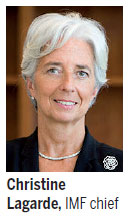
Developments within emerging economies are quite diverse. In 2015, GDP in two of the four largest emerging economies, China and India, grew between 7-and-7.5 percent, while GDP contracted by close to 4 percent in the other two, Russia and Brazil.
Factors contributing to China's slowdown include the rebalancing of the Chinese economy from investment to consumption, and from external demand to domestic demand, Lagarde said.
"While a stable Chinese economy growing at sustainable rates is ultimately good for the world economy, the transition is costly for trading partners that rely on Chinese demand for their exports," she said.
"It can also trigger bouts of financial volatility along the way," she added.
Lagarde noted that the large decline in commodity prices has taken a toll on disposable income for many commodity exporters.
She noted that emerging economies have been slowing, but from an exceptionally fast pace of growth in the past decade.
"Their slowdown is therefore more a return to the historical norm," said the 60-year-old French national, who took the IMF helm in July 2011 and began her second five-year term on July 5.
The real growth in advanced economies, according to the IMF, is running almost a full percentage point below the average of 1990-2007. Many are still plagued by crisis legacies, such as stubborn weak demand.
"The longer demand weakness lasts, the more it threatens to harm long-term growth as firms reduce production capacity and unemployed workers are leaving the labor force and critical skills are eroding," said Lagarde, who also warned against the growing income gap in developed and developing countries.
"Forceful policy actions are needed to avoid what I fear could become a low-growth trap," she said.
Lagarde believes that fiscal policy has a larger role to play. "Where there is fiscal space, record-low interest rates make for an excellent time to boost public investment and upgrade infrastructure," she said.
She also called for structural reforms. "Countries are not doing nearly enough in this area. Two years ago, the members of the G20 pledged reforms that would lift their collective GDP by an additional 2 percent over five years. But in the most recent assessment, the measures implemented to date are worth at most half this amount, so more reforms are urgent," she said.
Lagarde called for reinvigorating trade by reducing trade costs and rolling back temporary trade barriers.
According to Lagarde, stronger social safety nets are needed in many emerging economies.
chenweihua@chinadailyusa.com
- Xi tells Park China opposes deployment of THAAD in ROK
- Singapore confirms 27 new cases of Zika infection
- Russia, Britain agree to mend ties
- EU can't leave entire migration issue to mediterranean countries: official
- Rousseff appeals impeachment to Supreme Court
- Europeans displeased with their education systems
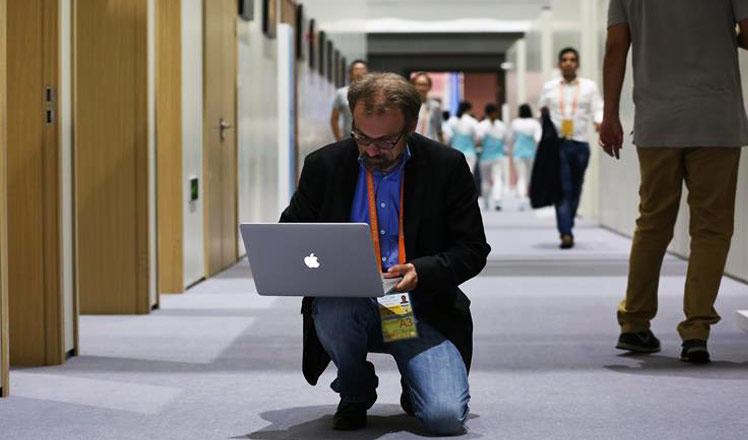
 In pics: Journalists cover G20 Summit in Hangzhou
In pics: Journalists cover G20 Summit in Hangzhou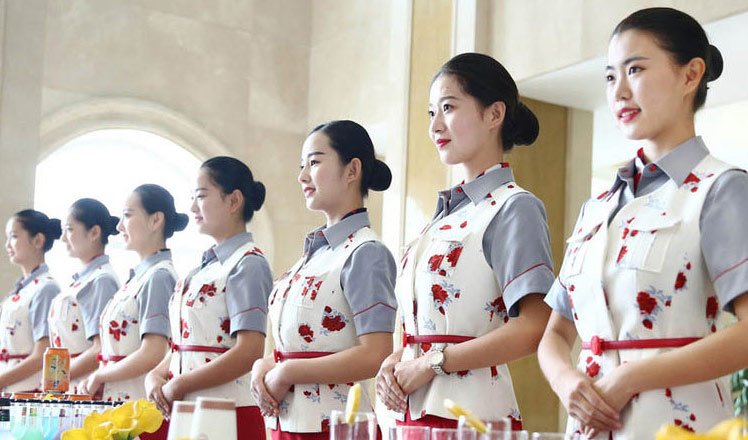
 Air attendant 'incubator' welcomes freshmen
Air attendant 'incubator' welcomes freshmen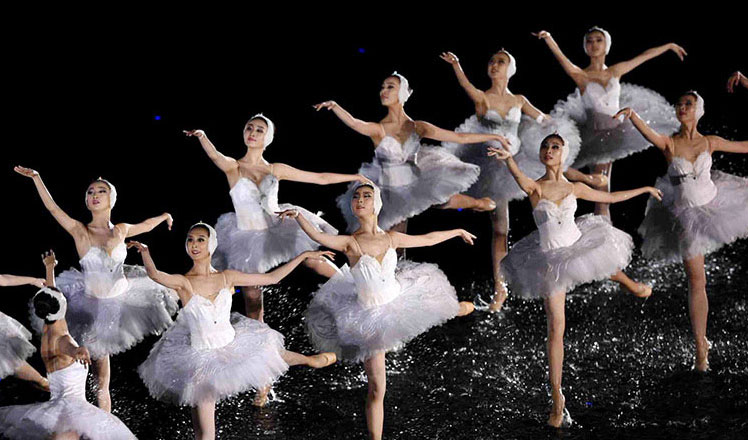
 Evening gala for G20 summit held in Hangzhou
Evening gala for G20 summit held in Hangzhou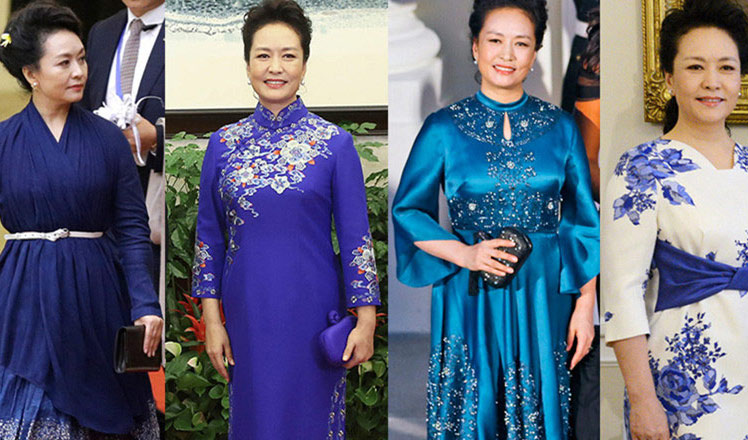
 First Lady fashion: Rhapsodies in blue
First Lady fashion: Rhapsodies in blue
 Hangzhou: A city of bridges in East China
Hangzhou: A city of bridges in East China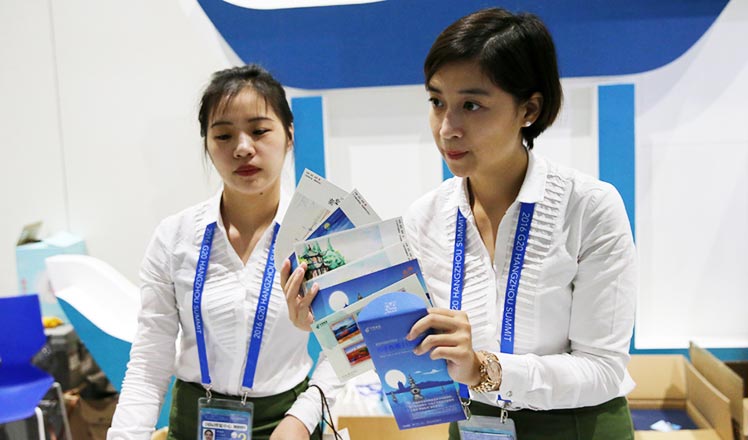
 Commemorative G20 stamps a hit at media center
Commemorative G20 stamps a hit at media center
 Ten photos from around China: Aug 26- Sept 1
Ten photos from around China: Aug 26- Sept 1
 Hangzhou: Paradise for connoisseurs of tea
Hangzhou: Paradise for connoisseurs of tea
Most Viewed
Editor's Picks

|

|

|

|

|

|
Today's Top News
Trump outlines anti-terror plan, proposing extreme vetting for immigrants
Phelps puts spotlight on cupping
US launches airstrikes against IS targets in Libya's Sirte
Ministry slams US-Korean THAAD deployment
Two police officers shot at protest in Dallas
Abe's blame game reveals his policies failing to get results
Ending wildlife trafficking must be policy priority in Asia
Effects of supply-side reform take time to be seen
US Weekly

|

|







